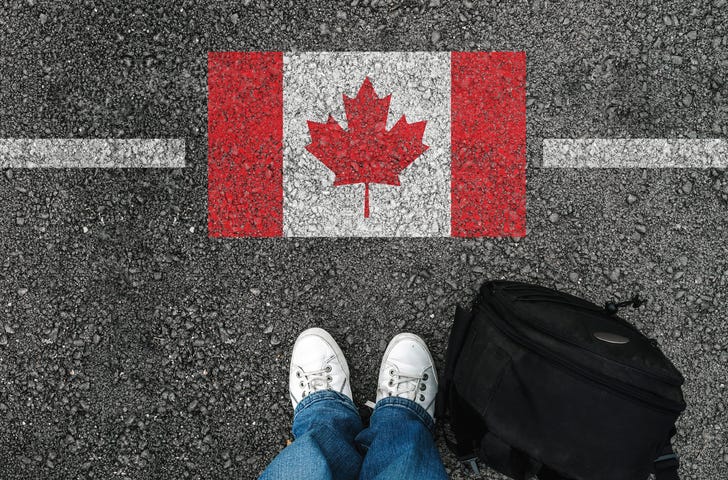
If you're thinking about traveling north of the border, you may want to reconsider.
Officials in the United States are warning residents to stay away from Canada as the country is elevated to the highest risk category for travel due to rapidly increasing cases of the coronavirus.
The warning comes after the Centers for Disease Control and Prevention on Monday raised its travel advisory for Canada to a level four risk category, indicating very high COVID-19 levels.
The CDC said outright that Americans should avoid travel to Canada.
"If you must travel to Canada, make sure you are fully vaccinated before travel," the CDC said. "Because of the current situation in Canada, even fully vaccinated travelers may be at risk for getting and spreading COVID-19 variants."
The advisory from the CDC also triggered the U.S. Department of State to issue a "Do Not Travel" advisory for Canada, due to a "very high level of COVID-19 in the country."
According to the CDC's Travel Health Notice Thresholds, a destination is considered a level four very high risk location when more than 500 cases per 100,000 residents are registered in the past 28 days.
Canada had previously been categorized as a level three high risk destination since August 30, 2021, CNN reported.
The move comes less than two months after the U.S. reopened its border with Canada following a shutdown that began in March 2020. The advisory from the CDC does not mean border restrictions are back in place.
If you travel to Canada, the CDC recommends getting a COVID-19 viral test three to five days after your return. Additionally, those who are unvaccinated should stay home and self-quarantine for a full five days after travel.
Canada recorded 294,437 new cases of the coronavirus for the week ending January 8, its highest weekly total of the pandemic, according to CNN.
More than 80 destinations are listed under the CDC's level four category for COVID-19 risk.


